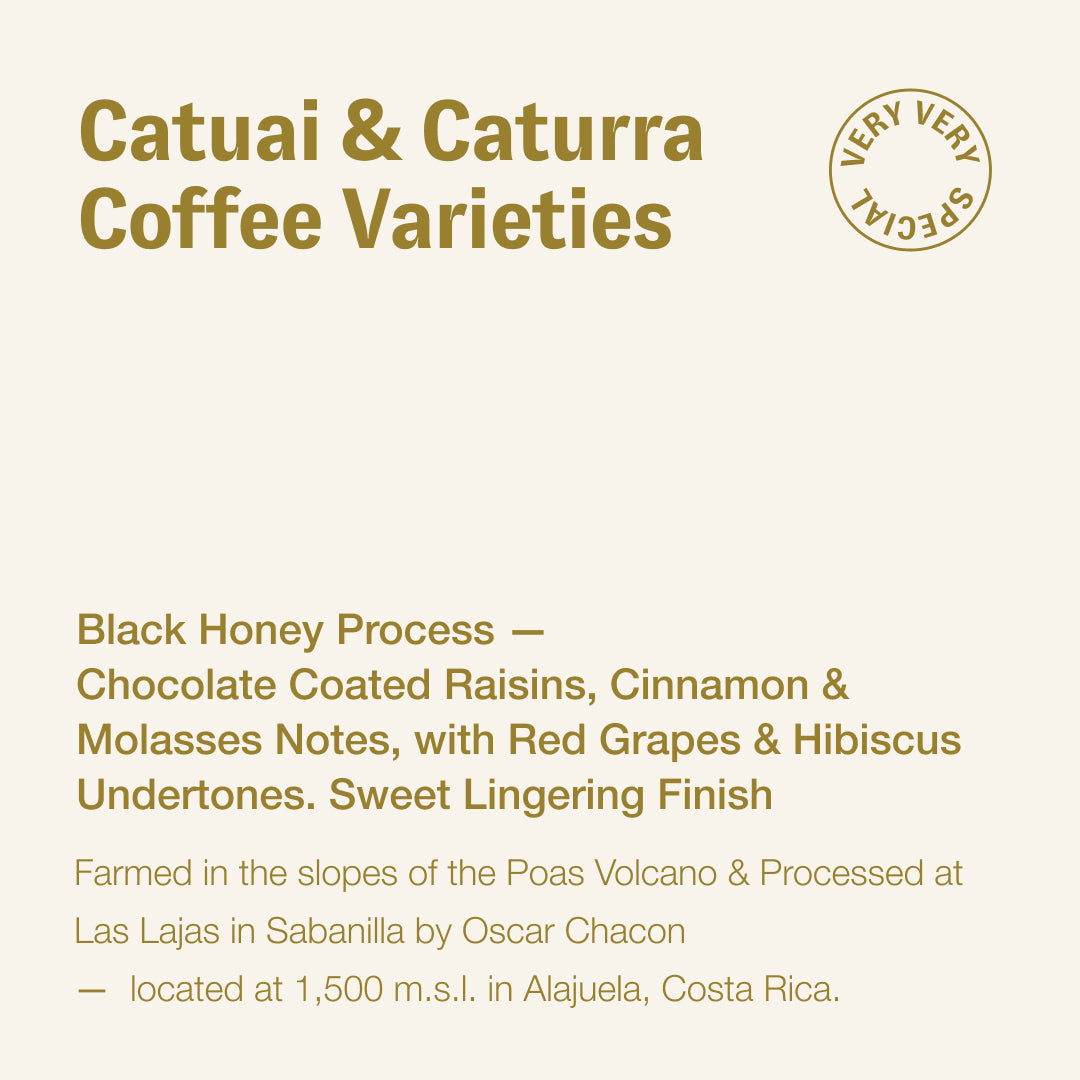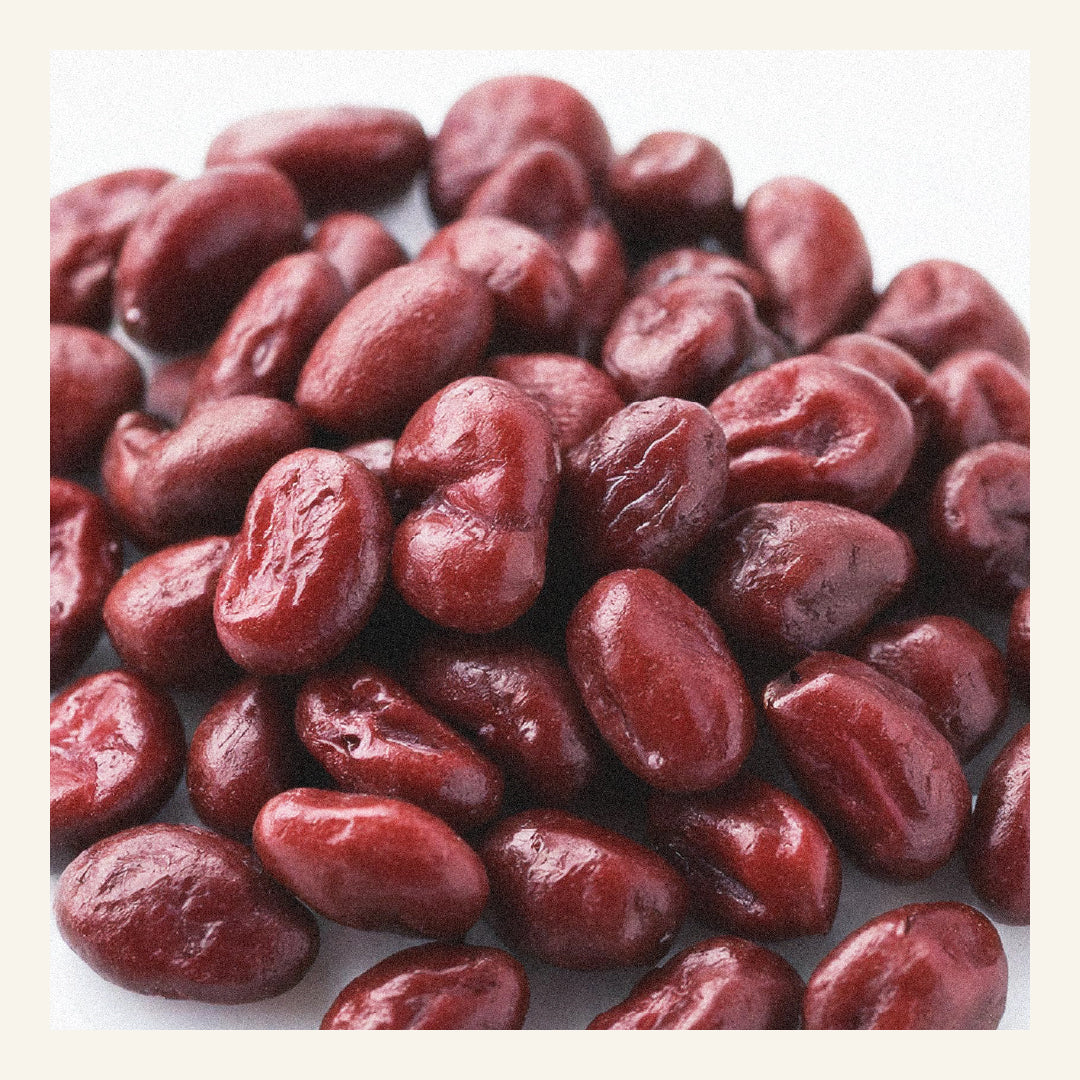luckycatcoffee.de
Verfügbarkeit für Abholungen konnte nicht geladen werden
Light Roasted Catuai & Caturra Coffee Varieties Farmed in the slopes of Poas Volcano & Processed at Las Lajas in Sabanilla by Oscar Chacon
200g €18 (1kg/ €90)
For three generations, the Chacon family has been farming in Alajuela, Central Valley, Costa Rica, on the slopes of the Poas volcano. Their coffee is produced organically near their micro-mill, taking advantage of the fertile volcanic soils for a good initial foundation of quality. Their dedication to quality is evident in their focus on post-harvest processing, which has earned them a reputation for being pioneers in producing high-quality honeys and naturals in Central America. Under the leadership of Oscar Chacon, the family has continuously pursued excellence, constantly experimenting with fermentation methods at their micro-mill. Through this curiosity and dedication, they have reinvented flavor profiles, providing unique and exciting taste experiences for coffee lovers. Now, you have the opportunity to experience their exceptional coffee for yourself.
Variety
Variety
Catuai & Caturra Coffee Varieties
-Catuai,
Catuaí derives from the Guarani multo mom, meaning “very good."
A cross between highly productive Mundo Novo Variety and compact Caturra Variety, made by the Instituto Agronomico (IAC) of Sao Paulo State in Campinas, Brazil.It was first introduced in Honduras in 1979, where it was tested by Instituto Hondureño del Café (IHCAFÉ).
The plant is highly productive, but It is highly susceptible to coffee leaf rust.
Sourced by worldcoffeeresearch.org
-Caturra
Caturra is a natural mutation of the Bourbon variety. It was discovered on a plantation in the state of Minas Gerais in Brazil sometime between 1915 and 1918. Caturra has a single-gene mutation that causes the plant to grow smaller (called Dwarf/Compactism). Its name derives from the Guarani word meaning "small." It is also called "Nanico."
The variety was never officially released in Brazil, but has become common in Central America. It was introduced in Guatemala in the 1940s, but widespread commercial adoption didn’t happen for another three decades. From Guatemala, it was introduced to Costa Rica, Honduras, and Panama.For decades, it was one of the most economically important coffees in Central America, to the extent that it was often used (and sometimes still is) as a “benchmark” against which new cultivars are tested. In Colombia, Caturra was thought to represent nearly half of the country’s production until a government-sponsored program beginning in 2008 incentivized renovation of over three billion coffee trees with the leaf-rust-resistant Castillo variety (which has Caturra parentage).
Process details
Process details
Catuai & Caturra Coffee Varieties Black Honey
Process Details
First they measure the Brix content in the coffee cherry to determine the optimal time to pick the coffee. 21–22% Brix.
In the honey process the coffee cherry peel is removed right after picking from the coffee tree, but some amount of the fleshy inside (“mucilage”), remains while the beans are dried over raised beds.
Black honey coffees usually take longer to dry because they are dried under shade.
This coffee it is dried with an intentional slowness in mind. In fact, the first day on the raised beds it is not moved at all. It rests with all its mucilage intact in order to enhance flavours as it sits. From then on it is turned over or raked once a day for up to three weeks to dry, similar to the natural process.
Location
Location
Origin: Costa Rica
Farmed: In the slopes of the Poas Volcan
Region: Alajuela
Altitude: 1500 m.s.l.
Coffee Supply Chain
Coffee Supply Chain
Actors involved in the coffee supply chain
Oscar Chacon – The Coffee Quest - Lucky Cat - YOU 🫵🏼
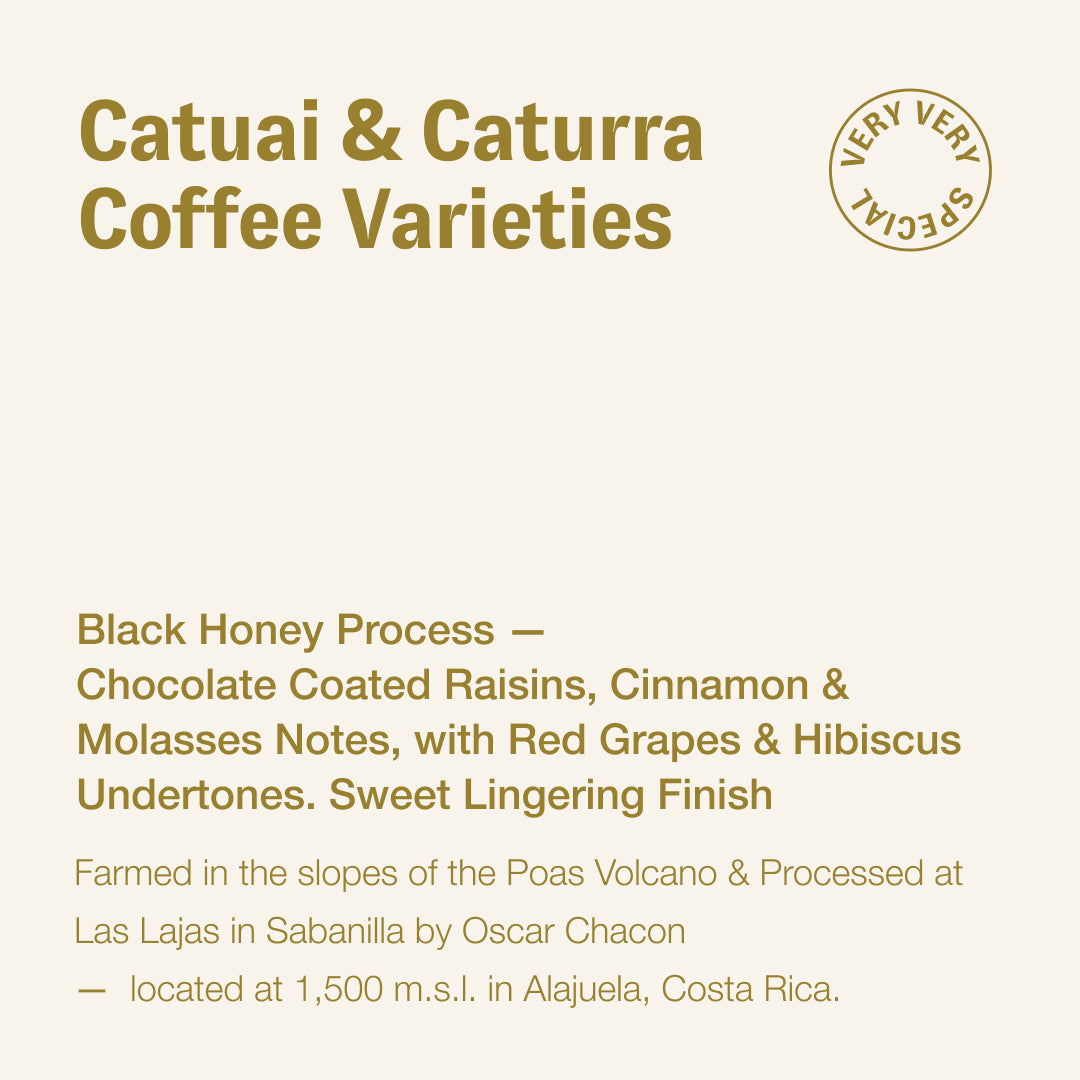
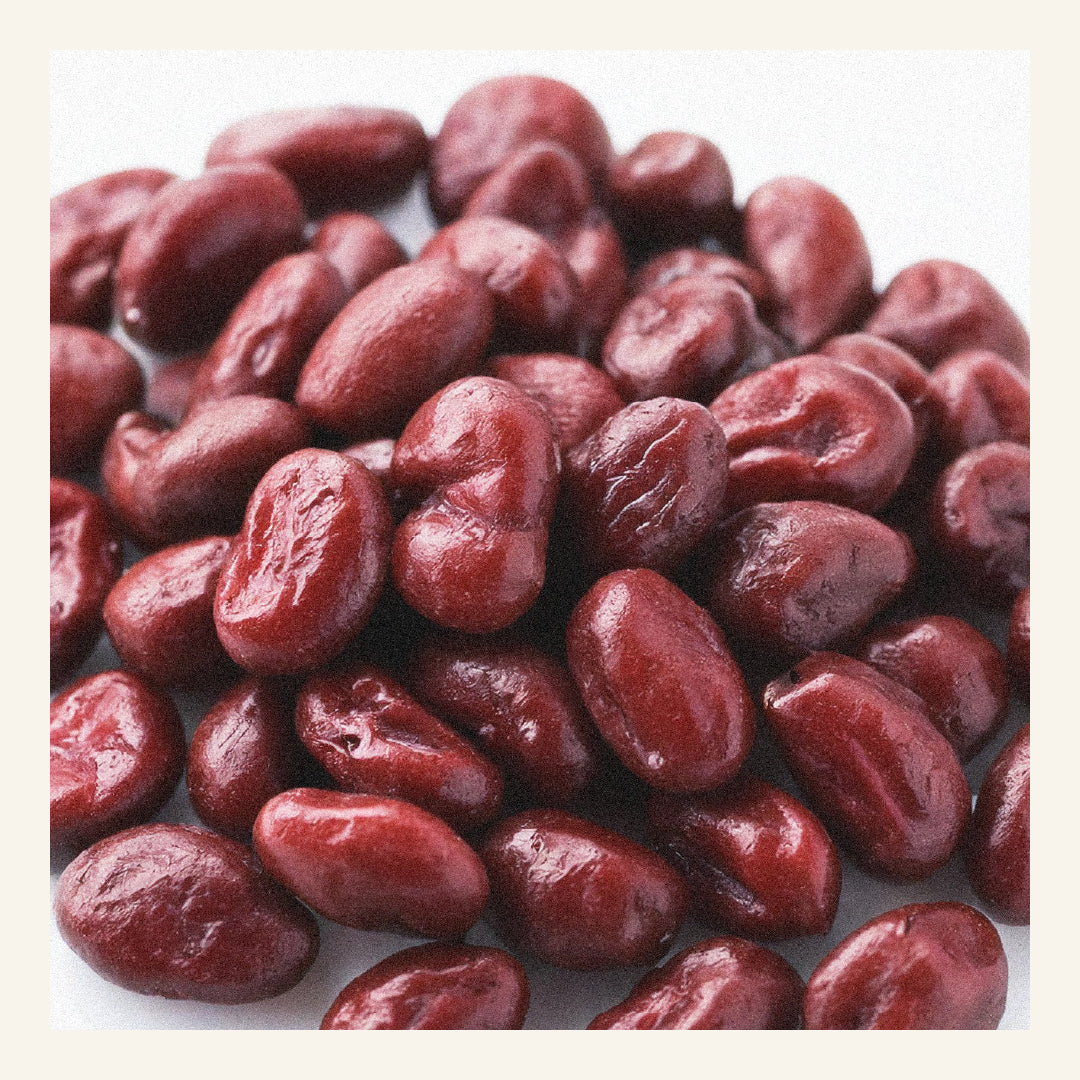
-
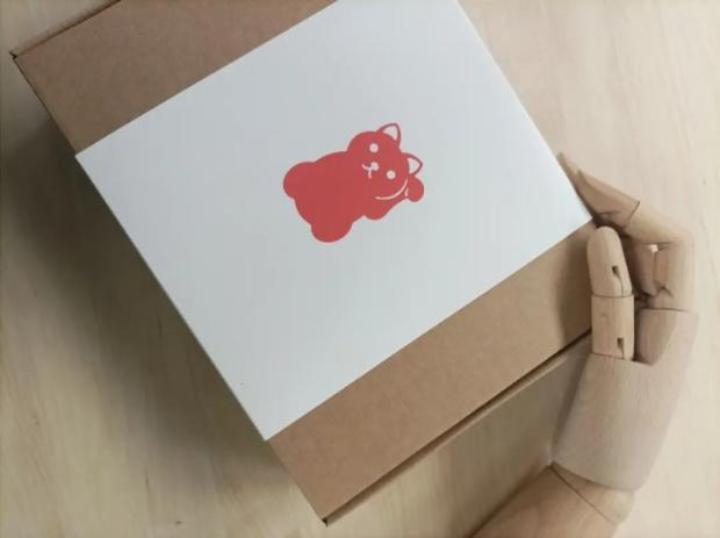
Free Shipping
In Germany, free shipping is offered for purchases over €38. In the EU & UK, free shipping is available for orders over €68.

